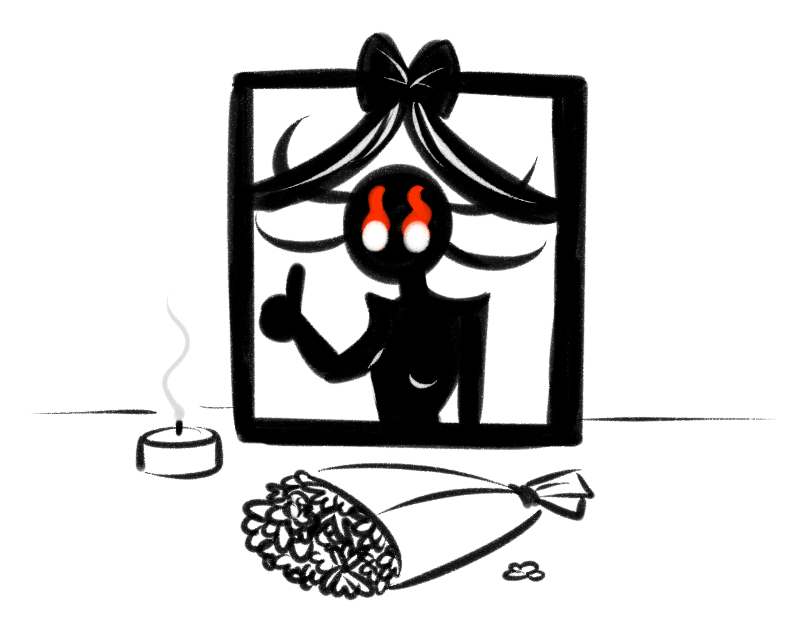05.30
The smoke is still billowing from the Samurai Jack finale, and it will take a while for some opinions on the season to solidify. But one major part of these last episodes will surely be a subject of debate, and by part, I mean Ashi. Ever since she was first introduced, fans were polarized at the thought of a new character taking some of the spotlight from Jack. Some were happy and pretended she was the new Ilana. Many were worried she would become Jack’s love interest, with such fears realized. Others pondered just how much of the plot was spent on her when it could have been used to further Jack’s struggle. Sure, she was a great factor in Jack’s character development, giving him someone to talk to in a major change from his loner demeanor from previous seasons, but how much of a unique flavor did she offer the show?
Ashi’s initial position in the show was that of an audience surrogate of sorts, for the people who didn’t watch the past seasons and tuned in to see what older fans are making a fuss about. She was the newcomer to the world of Samurai Jack, and when she learned new information, so did those new viewers. Jack was too muddled with fatalism and anger at himself, so it made a little sense to introduce someone younger and less miserable for the show’s grand return. It’s not a movie after all, and the Adult Swim execs and Genndy probably thought spending ten episodes on Jack alone would be too much of a risk. Meaning that while Jack was still the title character, it could be suggested that Ashi was indeed the focal point of season five. After all, she’s the one who relieves Jack of his depression, helps him bring back his sword, and creates the time portal that leads to Aku’s defeat. She was important, perhaps too much if you ask certain fans.
Instead of defeating Aku through the efforts of himself and his long-time allies, Jack’s major trials are also taken by this new character in his life. And in a way, it could be distracting. This was Jack’s final round against Aku, so seeing it all lead up to Ashi discovering she has Aku’s powers and sending Jack back to quickly kill her father was underwhelming. But to be charitable, perhaps Ashi’s meant to symbolize all the friends Jack acquired in his journey. She was freed from tyranny like the Woolies, able to fight on par with Jack like the Scotsman, purified from evil like the Archers, and had a nature similar to whatever good parts of Ikra that Jack might still remember. She was a symbol of all the good Jack did in Aku’s future, as she attested when she fought the Omen.
And as I said about her replacing Jack as the audience’s eye and ears, she follows a darker, yet similar path that Jack did when he first found himself in the future back in season one. She was a child soldier trained to kill a sworn enemy. When facing said sworn enemy, she falls victim to traps and can only flail helplessly. And this setback leads her to adapt her ways, going outside of her comfort zone and seeing all the quirks and entities in Aku’s society. Sort of like what Jack’s character is in the pilot movie. So spiritually, Ashi was like the season one Jack telling season five Jack to get back on his feet and fight for the future. Something that has odd implications when you factor in their romance, unless people were actually into Jack selfcest all along.
So was her romance with Jack a good idea? Or would the father-daughter aspect been an improvement? I’ve previously praised and criticized Genndy for using other works as reference for his own, and for all the action and suspense, Samurai Jack is not a cartoon that goes out of the way to subvert story cliches. Which means we would have either went full Gurren Lagann, or the sad, old warrior dad route explored by Nier/Logan/Berserk/Angel/Grant Morrison Batman/Unforgiven/Countless other Clint Eastwood movies/etc. Or a compromise between the two and just rip off Venom Snake’s relationship with Quiet. Whatever the case, it definitely could have been explored better. Instead, it felt like another story where a hero slowly converts a female villain to the side of good while making out with her after. More episodes wouldn’t have alleviated that, because some movies can tell perfectly good relationships in under ninety minutes. And it felt like Genndy wasn’t properly using his run time after the third episode. I mean, I’m not exactly expecting Tarkovsky from Tartakovsky, but sometimes you just have to jump through the rings instead of taking the shortcut.
Then we have to wonder if Ashi’s death should have been. It works if you wanted Jack to have this one extra gut punch before he think he can relax from Aku’s tyranny. Not so much if you were invested in Ashi’s personality and didn’t want her to just become another female lead killed to give the male hero more drama in his life. Just as she’s the one who breathes new life into Jack’s mission, she’s also the one who puts up the chairs and turns off the lights. I’m sure another writer will have an essay all about how Ashi’s fate is emblematic of Genndy’s casual misogyny or some other controversial statement, but Ashi as a character was often spent playing hopscotch on Jack and Aku’s shadows. Her own wants beyond freedom from her parents’ bonds weren’t illustrated well enough, and you get the sense that her in-universe existence is simply a means to an end rather than a natural character arc. Shamefully ironic for someone introduced as the inquisitive one out of her sisters.
